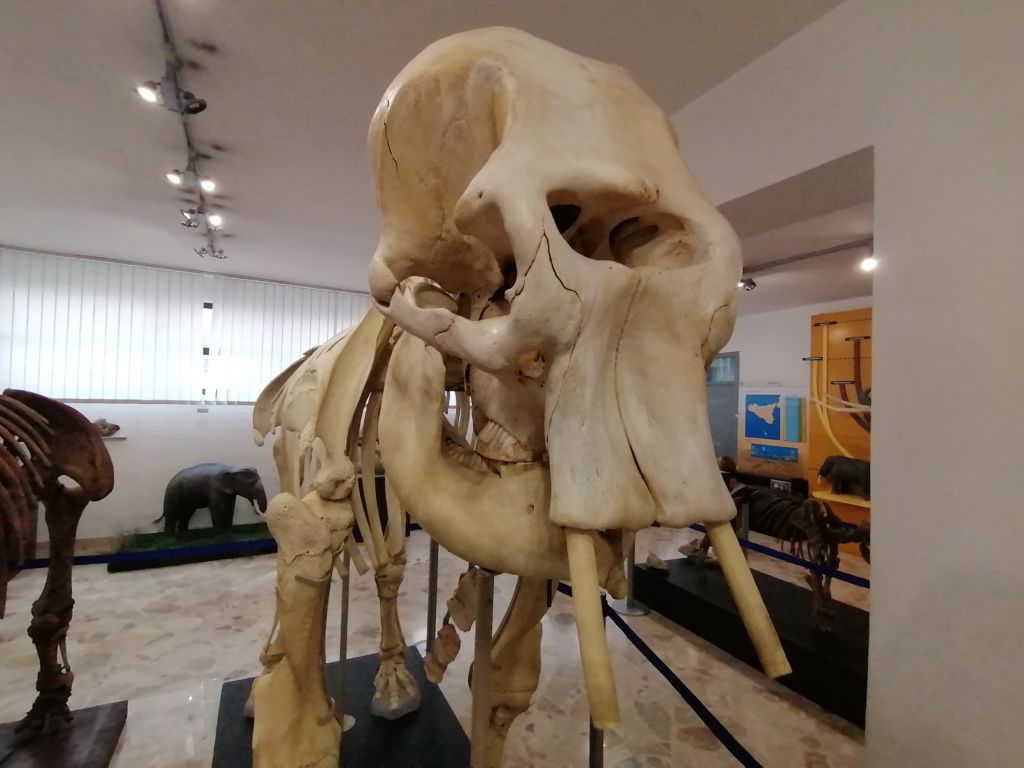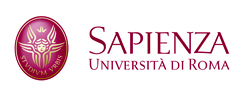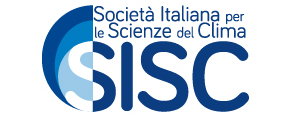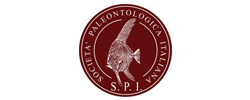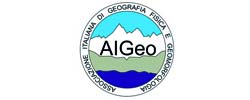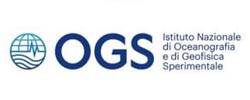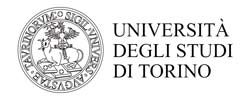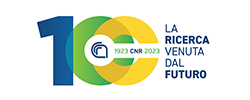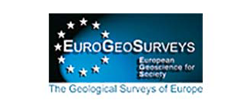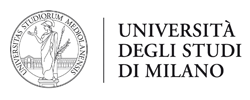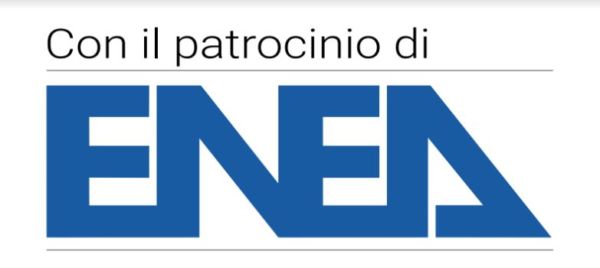Workshops and Short Courses
A range of expert workshops or short courses for students, ECR, or any interested researcher will be available for free or at an additional cost if organizers require.
Participants are expected to register to individual workshops or short course through the Exordo platform. More detailed information will be provided soon.
We will accept registrants above the maximum number of participants and create a waiting list. The deadline to register will be 20 February 2023.
For specific information about each workshop and short course please refer to the relative convener.
| NAME | PCW1 |
| DATE | July 12th |
| TITLE | Exploring the interface between Sustainability and Palaeoecology |
| CONVENER(S) | Lindsey Gillson, Plant Conservation Unit, University of Cape Town, South Africa lindsey.gillson@uct.ac.za Anneli Ekblom, Department of Archaeology and Ancient History, University of Uppsala, Sweden anneli.ekblom@arkeologi.uu.se |
| DURATION | 6h |
| PARTICIPANTS | 5-20 |
| FEES | NO |
| RELEVANT INQUA COMMISSION | PAGES |
| DESCRIPTION | As the world continues on its unsustainable trajectory towards “hothouse earth”, various attempts have been made to define a safe operating space for key biological and environmental processes. Defining these spaces can assist in stabilising earth system processes by returning them to “Holocene-like” conditions (Steffen et al. 2018). Without longer-term data, we are tasked with trying to return a system to unknown conditions. For most ecosystems and processes, we do not have long-term data that spans key historical transitions e.g. the great acceleration (c. 1950), industrialisation and European colonisation (C17th – C19th), Medieval Climate Anomaly (C10th-C13th), mid-Holocene altithermal (9-5ka), beginning of agriculture (10+ka). These timespans are important in exploring the variability and resilience of key parameters including vegetation (land-cover), fire, nutrient cycles, water quality, pollution, soil erosion, information which could assist in defining safe operating spaces and mapping sustainable trajectories that stabilise essential earth system processes and associated ecosystem services. The aim in this workshop is to explore how long-term data from palaeoecology, paleoclimatology, archaeology, use of documentary sources and repeat photographs and in combination with remote sensing techniques which allows for monitoring environmental change over decadal to millennial timescales, and to relate this to defining tipping points in social-ecological systems. Furthermore, advances in quantitative palaeoecology can assist in identifying tipping points and regime shifts that can interface directly with the planetary boundaries literature. The combination of these methodologies alongside other knowledge streams allows for a much needed temporal continuum from scales of millennia to months contributing to a better understanding of landscape change and variability. In addition, the combination of cross disciplinary approaches allows for a better understand of past and present management (positive and negative) and the range of interventions possible for landscape management today and in the future. |
| NAME | PCW2 |
| DATE | July 12th |
| TITLE | Best practices and data quality challenges for coastal marine proxies in the Arctic ACME Steering Committee https://pastglobalchanges.org/science/wg/acme/intro |
| CONVENER(S) | Maija Heikkilä, Ecosystems and Environment Research Programme, University of Helsinki, Finland, maija.heikkila@helsinki.fi Anna Pieńkowski, Institute of Geology, Adam Mickiewicz University, Poznan, Poland, anna.pienkowski@amu.edu.pl Sofia Ribeiro, Department of Glaciology and Climate, Geological Survey of Denmark and Greenland, Copenhagen, sri@geus.fi Kaarina Weckström, Ecosystems and Environment Research Programme, University of Helsinki, Finland, kaarina.weckstrom@helsinki.fi |
| DURATION | 4 hours |
| PARTICIPANTS | 15-30 |
| FEES | NO |
| RELEVANT INQUA COMMISSION | PALCOMM /CMP |
| DESCRIPTION | The main goal of this workshop is to disseminate and discuss the relevant results and deliverables from ACME WG Phase I, to gather feedback and to plan future steps with the wider community. In addition, we wish to facilitate knowledge transfer and collaborations between proxy specialists and end users as well as between various research groups. We will address representatives from PAGES ACME, MARDI, C-SIDE WGs, INQUA CMP and PALCOMM, The Climate and Cryosphere (CliC) Core Project, small and large research networks conducting research on Arctic marine sediments or applying Arctic paleoceanographic data (such as climate modellers and modern oceanographers/ecologists). Discussion points include the state-of-the-art proxy use, relevance of harmonization of research processes and metadata documentation, critical methodological points and data quality challenges, important aspects of big (and small) data interpretation and application. We discuss these within a framework of proxies commonly used for temperature, sea ice, primary production, and meltwater runoff reconstructions in Arctic marine, coastal and fjord environments over the Quaternary. |
| NAME | PCW3 |
| DATE | July 12th |
| TITLE | Reconstructing the Quaternary explosive volcanic history of the Anatolian Peninsula: Implications for volcanic hazard assessments in Turkey |
| CONVENER(S) | Ivan Sunyé Puchol, Università di Roma La Sapienza, ivan.sunyepuchol@uniroma1.it Rebecca Kearney, GFZ – Potsdam, rebecca.kearney@gfz-potsdam.de Victoria Smith, University of Oxford, victoria.smith@arch.ox.ac.uk Erkan Aydar, Hacettepe University – Ankara, eaydar@hacettepe.edu.tr Silvio Mollo, Università di Roma La Sapienza, silvio.mollo@uniroma1.it |
| DURATION | 6h |
| PARTICIPANTS | max 25 |
| FEES | NO |
| RELEVANT INQUA COMMISSION | IAVCEI/INTAV |
| DESCRIPTION | The aim of this workshop is to discuss about the Quaternary explosive volcanism in the Anatolian peninsula, with special interest at the most recent studies on the larger and active volcanic structures located in Central and Eastern volcanic provinces. This will include the results of the PÜSKÜRÜM project, funded by the EU HORIZON 2020 Research and Innovation Programme (Marie Sklodowska-Curie Actions), which is studying the proximal pyroclastic deposits within the Central Anatolian Volcanic Province (CAVP) and their related distal tephra layers in order to reconstruct the explosive volcanic history of the region (including eruption magnitudes and frequency). The workshop will be dedicated to examining different strategies aiming at improving volcanic hazard assessment in Turkey. Anatolian volcanic eruptions can be highly destructive and dispersed ash over hundreds of kilometers away, threatening lives and damaging important cities, such as Aksaray – located only 20 km NW of Hasan Dag volcano within the CAVP, which has seen a recent increase in volcanoseismic and fumarolic activity; and also Kayseri city with 1 millions of inhabitants and located on the northern flank of Erciyes volcano, which has generated voluminous Holocene eruptions. In the Eastern Anatolian Volcanic Province (EAVP) there are also several active volcanoes, being the most dangerous the Nemrut caldera that collapsed <30 ka ago and is still producing post-caldera explosive eruptions, being the last on April the 13th of 1692. |
| NAME | PCW4 |
| DATE | PRE Congress July 13th |
| TITLE | Neotoma Paleoecology Database: Catalyzing Open Quaternary Science |
| CONVENER(S) | Jessica Blois, University of California Merced, jblois@ucmerced.edu |
| DURATION | 6h |
| PARTICIPANTS | max 50 |
| FEES | NO |
| RELEVANT INQUA COMMISSION | HABCOM/PALCOM |
| DESCRIPTION | This workshop will focus on using the Neotoma Paleoecology Database to analyze Quaternary data, and provide support for uploading and archiving data in Neotoma. The morning session is designed to provide users of the Neotoma Database with an overview of the new neotoma2 R package, and its use in obtaining data from the Neotoma Paleoecology Database, presenting different use cases that rely on the Neotoma2 R package. The afternoon session is designed as a help desk / co-work space, where potential new database users can drop by to learn about the database and existing users and data stewards can receive support for working on data uploads to Neotoma or data analyses from Associate Chair Jessica Blois and other experienced Neotoma Data Stewards. |
| NAME | MCW1 |
| DATE | July 16th |
| TITLE | International Quaternary Map of Europe IQUAME 2500 Consultation Workshop |
| CONVENER(S) | Kristine Asch, Federal Institute for Geosciences and Natural Resources Marco Pantaloni ISPRAMBIENTE, Roma |
| DURATION | 8h |
| PARTICIPANTS | 5-35 |
| FEES | NO |
| RELEVANT INQUA COMMISSION | SACCOM |
| DESCRIPTION | Reviewing the actual draft International Quaternary Map of Europe and Adjacent Areas (QUAME 2500): Completeness and correctness of Quaternary units on the map and their description and labels. To be organized by small regional and thematic breakout groups. Aim is to optimize and fine-tune the IQUAME2500 map information. Participants need to be familiar with their countries Quaternary geology or have specific thematic expertise, e.g. on crossboundary themes such as last glacial maxima, limits of permafrost, marine Quaternary geology outside the EEZ, active faults/Quaternary tectonics, etc. |
| NAME | MCW2 |
| DATE | July 16th |
| TITLE | Multi-theme Quaternary database for the Global South: challenges and opportunities |
| CONVENER(S) | Xavier Benito IRTA, Spain, xavier.benito@irta.cat, Charuta Kulkarni Independent, UK/India; ckulkarni@gradcenter.cuny.edu, Ignacio Jara Center for Advanced Studies in Arid Zones, CEAZA, Chile; ignacio.jara@ceaza.cl, Shanti Pappu The Sharma Center for Heritage Education and Visiting Professor, SIAS, Krea University, India; pappu.shanti@gmail.com, Kumar Akhilesh The Sharma Center for Heritage Education, India; akhilarchaeo@gmail.com |
| DURATION | 6h |
| PARTICIPANTS | 10-30 |
| FEES | NO |
| RELEVANT INQUA COMMISSION | HABCOM, PALCOM |
| DESCRIPTION | This workshop aims to bring together researchers, who are invested in the study of the Global South and were/are participants of the INQUA-supported Holocene database project, pSESYNTH (2022-2023), and a new Pleistocene- focused database initiative, PleistoScape. The specific project objectives include: 1. Exploiting the existing single-themed databases and use records from paleoclimatology, paleoecology, and archaeology that could complement participant’s choice of systemic components over time. 2. Exploring participant’s datasets by regions and organize them into a centralized and dynamic repository. 3. Analyzing time series and proxies using scalable and comparable methods across themes (paleoclimatology, paleoecology, archaeology). 4. Introducing the participants with a synthesis workflow for data sharing and reproducibility relevant for collaborative projects. The proposed workshop will provide a platform for reflecting upon the experiences related to data synthesis and multiple hypothesis testing frameworks utilized in the above projects. Through collating case studies from sub- regions of the Global South, the workshop participants will discuss the overarching as well as region-specific data and scale mismatches, human-ecological processes, and success or struggle stories from the Global South where future opportunities lie. Participants will gain first-hand experience on how to manage paleo-data available in open access databases. Researchers whose work is focused on the Global South, are particularly welcome. There are no specific requirements on participant’s skills yet experience in managing large and diverse datasets will be positively considered. It would be an advantage to bring own data to attain a win-win situation: access to a larger and multi-themed set of records and networking opportunities supported by INQUA community. |
| NAME | MCW3 |
| DATE | July 16th |
| TITLE | Integrative paleo-approaches for global conservation challenges. |
| CONVENER(S) | Lindsey Gillson , Plant Conservation Unit, Department of Biological Sciences, University of Cape Town, South Africa, Contact email: lindsey.gillson@uct.ac.za Daniele Colombaroli (Centre for Quaternary Research, Department of Geography, Royal Holloway University of London) and PAGES DiverseK members. Contact email: daniele.colombaroli@rhul.ac.uk |
| DURATION | 4-6h |
| PARTICIPANTS | max 20-25 |
| FEES | NO |
| RELEVANT INQUA COMMISSION | HABCOM |
| DESCRIPTION | With the growing need in the Quaternary Science community to make paleo-data more relevant for addressing future global challenges, the PAGES DiverseK WG is promoting cross- disciplinary research at the interface between Palaeoecology, Dendroecology, Conservation Biogeography, Fire ecology and related disciplines. The aims of this workshop is to: 1. discuss the role of paleo-data for supporting conservation and sustainable management of forest and climate mitigation goals, as recently highlighted by the UN Climate Change Conference (COP26); 2. Identify key areas where emerging conflicts between conservation targets, socio-ecological and environmental needs can be tackled by an integrative paleo-perspective; 3. Discuss future DiverseK activities, including workshops and group publications. We welcome ECR’s and more experienced researchers across a wide range of disciplines, particularly Paleoecology, Dendroecology, Archaeology and related disciplines. Participants are welcome to bring their own dataset for discussion. This workshop is supported by the PAGES DiverseK WG, the Leverhulme Wildfires Centre and the PAGES IPN. |
| NAME | MCW4 |
| DATE | July 16th |
| TITLE | RECENT DEVELOPMENTS IN LANDSLIDE SCIENCE: Implications for Geomorphic Modeling, Hazard Assessment, and Paleoclimate Proxies |
| CONVENER(S) | James P. McCalpin, GEO-HAZ Consulting, mccalpin@geohaz.com Anika Braun, Tech. University of Berlin, anika.braun@tu-berlin.de Paola Reichenbach, Consiglio Nazionale della Ricerche, paola.reichenbach@irpi.cnr.it Fausto Guzzetti, fausto.guzzetti@cnr.it, f.guzzetti@irpi.cnr.it |
| DURATION | 8h |
| PARTICIPANTS | 10-40 |
| FEES | 10€ for of hard copy handouts and USB drives |
| RELEVANT INQUA COMMISSION | TERPRO |
| DESCRIPTION | The proposed Workshop would be aimed at showing INQUA members the latest techniques in landslide mapping, landslide inventories, landslide dating, and hazard assessment. Much good work has been accomplished in Italy, starting with the Italian nationwide landslide inventory (https://www.progettoiffi.isprambiente.it/) and extending into 2020-2021 papers on dating landslides in northern Italy. As mentioned in the First Circular , “…the Mediterranean region is so geologically young and active, it is the ideal location to discuss the process and events that shaped the landscape, environments and ecosystems over the last 2.58 million years.” Landscape shaping was accomplished roughly equally by fluvial erosion/deposition, hillslope processes (including mass movements such as landslides), and tectonics uplift/subsidence. In the Congress there will be many papers presented on the latest advances in tectonic geomorphology and earthquakes, much of it based on lidar DEMs. But the geologic record of landslides is equally important and has also experienced many recent technological advances using lidar and GIS. We believe many INQUA members would be interested in a Workshop that displayed how these new technologies are used in practice to reconstruct landslide movement histories, and how they have affected our interpretive paradigms for mass movement (e.g. von Wartburg et al., 2020; Aksay et al, 2021). Traditional methods of landslide dating were aimed at establishing the initial age of failure. But almost every landslide mass also contains a history of partial-area reactivations. If landslide chronologies can be precisely dated (e.g., Panek, 2014), reactivations could constitute a paleoclimate proxy, one not currently used by paleoclimate specialists. |
| NAME | MCW5 |
| DATE | July 16th |
| TITLE | Processes and feedbacks during glacial terminations |
| CONVENER(S) | L. Menviel, School of Biological, Earth & Environmental Sciences, University of New South Wales, l.menviel@unsw.edu.au, R. Ivanovic, School of Earth and Environment, University of Leeds, R.Ivanovic@leeds.ac.uk, L. Lisiecki, University of California, Santa Barbara lisieki@geol.ucsb.edu, H. Stoll, ETH Zürich, Dep. of Earth Sciences, heather.stoll@erdw.ethz.ch, E. Capron, Physics of Ice, Climate and Earth, Niels Bohr Institute, University of Copenhagen, capron@nbi.ku.dk, J. Gottschalk, Columbia Climate School, Lamont-Doherty Earth Observatory, jg3997@columbia.ed |
| DURATION | 8h |
| PARTICIPANTS | max 30 |
| FEES | NO |
| RELEVANT INQUA COMMISSION | PALCOM |
| DESCRIPTION | This workshop is part of the INQUA Terminations 5 to 0 (T5-0) working group and will bring together scientists trying to better understand the processes occurring during deglaciations. This workshop will provide an opportunity to discuss the latest progress obtained through the analysis of paleo-proxy records, numerical simulations, or new data compilations. It will allow a synthesis of the work done by T5-0 over the last years and discuss future plans. |
| NAME | MCW6 |
| DATE | July 16th |
| TITLE | Inter Continental Scientific Drilling Program: Scopes, Design and future prospects for Early Career Researchers |
| CONVENER(S) | Prof. Flavio Anselmetti, Managing Director and Professor for Quaternary Geology and Paleoclimatology, Institut für Geologie, Email: flavio.anselmetti@geo.unibe.ch Thomas Wiersberg, ICDP, Outreach Coordinator, Germany, Email: icdp-outreach@gfz-potsdam.de Nivedita Mehrotra, ECR chair INQUA, Women Scientist, Birbal Sahni Institute of Palaeosciences Lucknow India, Email: nivedita.mehrotra@bsip.res.in |
| DURATION | 2h-8h |
| PARTICIPANTS | max 30 |
| FEES | NO |
| RELEVANT INQUA COMMISSION | ALL |
| DESCRIPTION | The Inter Continental Scientific Drilling program has successfully developed almost sixty drilling projects since its establishment in the year 1996 and continues to provide financial and technical support for scientific continental drilling projects. The approach of ICDP and its member countries for encouraging scientific investigation has lead towards successful scientific findings towards understanding Earth’s history, the geodynamics processes, geo-hazards, geo-resources, and environmental change involved. Large pools of scientists and stake holders have been involved in the ICDP projects to contribute towards all the projects and their findings. The development of science cannot take place without the contribution of the early career researchers who shall be the future scientific members of the society. So ICDP encourages the participation and contribution of ECR in its scientific agendas. This workshop aims to draw the attention of participating ECR towards ICDP and its scientific capacity specifically for Quaternary researchers. ICDP continues to support projects financially, through a range of scientific-technical services along with support in data management and publication. This workshop shall help the ECR community towards understanding the role and framework of ICDP directly from Scientist who has successfully completed an ICDP project; key personnel from ICDP Germany who shall inform about the structure functioning of ICDP and upcoming ICDP event; a young ECR who is part of an upcoming ICDP project and also the INQUA ECR committee member and ECR-Chair. This is going to be a short workshop and shall include a lecture, discussion and display by the conveners. We expect at least 25 ECR participants who can be potential future ICDP project and align with the prospects of future scientific drilling. |
| NAME | PCSC1 |
| DATE | 9-13 July |
| TITLE | Introduction to Ostracoda |
| CONVENER(S) | Peter Frenzel, Friedrich Schiller University of Jena; peter.frenzel@uni-jena.de |
| DURATION | 5 days |
| PARTICIPANTS | 10-22 |
| FEES | 1,500 € for participants from companies 300 € for Universities/Government 150 € for students Fees are used to cover expenses for the workshop (script, catering, consumables) and future activities of SF*IRGO (see https://www.support-irgo.net/) |
| RELEVANT INQUA COMMISSION | CMP, HABCOM, PALCOM, SACCOM |
| DESCRIPTION | Ostracoda is one of the main groups of biological proxies in Quaternary geosciences. The offered course is designed to provide an overview of the taxonomy, (palaeo)ecology, biodiversity, geological history, and applied biostratigraphy of ostracods. It is intended for young scientists and industrial staff interested in micropalaeontology, palaeoceanography, palaeoclimatology, biology, and environmental applications. We will present and train methods and concepts of ostracodology including systematics, biostratigraphic applications, ecology and life history spanning their fossil record from the Paleozoic to the Holocene with a focus on Quarternary faunas and applications and covering the recent fauna as well. Case studies from marine and continental systems as well as practical training for identification, preparation, documentation, and analysis will be an important part of the course. The course is primarily intended for young researchers at the PhD or MSc stages of their careers and industrial staff who intends to work with ostracods or just started to do so. People holding a postdoctoral position are also welcome. |
| NAME | MCSC1 |
| DATE | July 16th |
| TITLE | An introduction to crestr, an R package to perform probabilistic climate reconstructions from palaeoecological datasets |
| CONVENER(S) | Manuel Chevalier, University of Bonn, Meteorology Department, Bonn, Germany Chevalier.manuel@gmail.com |
| DURATION | 4h |
| PARTICIPANTS | 10-25 |
| FEES | NO |
| RELEVANT INQUA COMMISSION | PALCOM |
| DESCRIPTION | With this course, I want to introduce an R package that I developed to perform probabilistic climate reconstructions using palaeoecological datasets (pollen, forams, etc). The course will be split in 3 phases: 1. I will introduce the mathematical bases of the method and discuss the different assumptions necessary to model the datasets. This will be followed by a short Q&A session. 2. I will then showcase how to use the package using an example dataset. The part will be interactive and will allow linking the different functionalities of the package with the theoretical elements presented during Phase 1. 3. Finally, the participants will be given the opportunity to start using the package with their own data. This package is designed to enable the broader community to perform reliable climate quantifications and improve the global coverage of existing datasets at various spatial and temporal timescales. Target audience: Colleagues who produce and/or use palaeoecological datasets to understand past climate change. Useful documentation: https://mchevalier2.github.io/crestr/index.html |
| NAME | MCSC2 |
| DATE | July 16th |
| TITLE | Reconstructing past climates from biotic assemblages |
| CONVENER(S) | Furlanetto Giulia, University of Milano-Bicocca, Italy; giulia.furlanetto@unimib.it Liu Mengmeng, Department of Life Sciences, Imperial College London; m.liu18@imperial.ac.uk |
| DURATION | 4h |
| PARTICIPANTS | 10-30 |
| FEES | NO |
| RELEVANT INQUA COMMISSION | PALCOM |
| DESCRIPTION | Past climate states allow tests of the models that are used to project climate responses to changes in atmospheric composition and land use. Direct measurements of climate only extend back to the seventeenth century and in many regions are not available before the twentieth century. Reconstructions for earlier, and more different, palaeoclimate states have to be inferred from indicators that respond to climate. Most reconstructions of terrestrial palaeoclimates are based on biotic assemblages, including pollen, chironomids and diatoms preserved in sedimentary archives. The prevalence of pollen across environmental settings has made palynology one of the most ubiquitous and valuable tools for studying past environmental and climatic change globally for decades. The course focuses on four different statistical techniques (MAT, WA, WA-PLS and fxTWA-PLS) used to derive quantitative estimates of climatic conditions, in particular of the Holocene and Pleistocene, from pollen assemblages. A short introduction of each statistical technique will be followed by a practical session in R environment. Each participant should bring his/her own computer with R software and the packages rioja and fxTWAPLS installed. |
| NAME | MCSC3 |
| DATE | July 16th |
| TITLE | Towards consolidating a Latin American Quaternary network |
| CONVENER(S) | Rodrigo L. Soteres, Universidad de Magallanes, rsoteres@uc.cl Flavia Morello, Universidad de Magallanes, flavia.morello@umag.cl Paula C. Ugalde, University of Arizona, paulaugalde@email.arizona.edu Fernanda Charqueño, CNAC-PNNH (CONICET), feri2000c@hotmail.com Daniela Kröhling, Universidad Nacional Litoral, dkrohling@santafe-conicet.gov.ar Manuel Arroyo-Kalin, University London College, m.arroyo-kalin@ucl.ac.uk |
| DURATION | 4h |
| PARTICIPANTS | 10-50 |
| FEES | NO |
| RELEVANT INQUA COMMISSION | GENERAL |
| DESCRIPTION | In the last decades, Quaternary research has rapidly expanded in Latin America. A growing number of studies focused on different disciplines of the earth and human sciences have promoted a noticeable increase of locally-produced Quaternary records. However, the lack of connections between different regions and research groups have played against multidisciplinary collaborations, a key requirement for tackling major questions regarding the complex environmental and human dynamics during the Quaternary, from regional to continental scales. On behalf of the recently formed Chilean Society of Quaternary Sciences (SOCHICUA), we proposed this special meeting with the goal of promoting collaboration among Latin American colleagues, overseas researchers working in Latin America, and the broad range of scientific societies focused on Quaternary sciences, from archeology to paleoclimatology and beyond. We aim to set in motion a collaborative network that brings together Latin American Quaternary scientists, to promote inter-regional collaborations that will help to gain a better understanding of the human and natural dynamics throughout the Quaternary Period. We expect that this meeting takes place under an inclusive approach that embraces our local knowledges and heritages and acknowledges the diversity of our landscapes and people. This working meeting will consist of presentations of individual researchers and/or Quaternary societies representatives, followed by an open table discussion. We expect participants to expose their case studies, experiences, and available resources for collaborative initiatives; as well as general contributions in topics such as: integrating public and private support, natural and cultural diversity, new research methods, gender equality, and shared colonial legacies. Presentations will be followed by an open table to discuss the strengths, weaknesses, and opportunities of a Latin American Quaternary network. Potential products that could emerge from this short course include open databases of Latin American Quaternary sites, comprehensive academic book about the evolution of the Quaternary sciences in Latin America, and the avenues for a future INQUA Congress in Latin America, as initial steps towards future and long-living scientific collaborations. |
